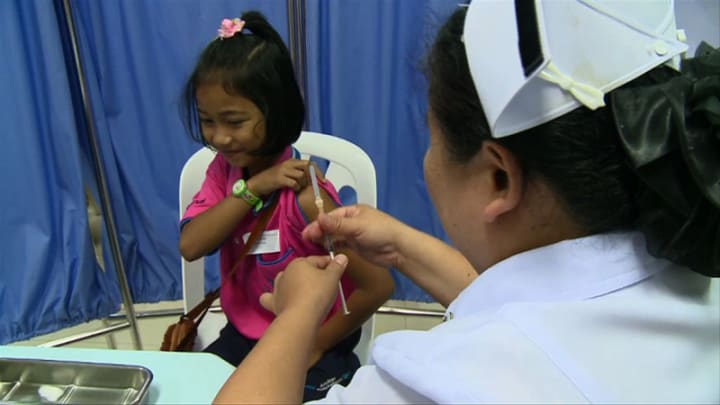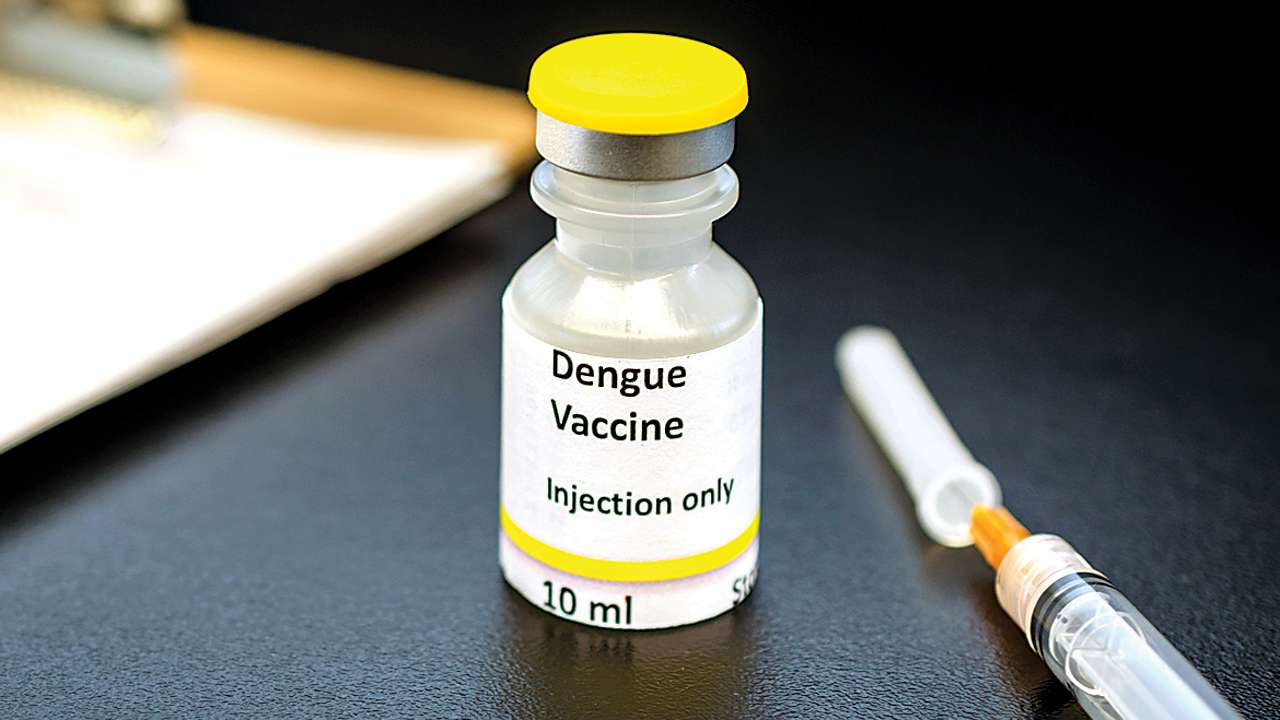 The World Health Organization has announced a comprehensive plan to eliminate industrially produced trans-fatty acids from the global food supply by 2023. It’s a good idea—but the five-year plan may be overly ambitious.
The World Health Organization has announced a comprehensive plan to eliminate industrially produced trans-fatty acids from the global food supply by 2023. It’s a good idea—but the five-year plan may be overly ambitious.
The plan, called REPLACE, urges global governments to eliminate the use of industrially produced trans fats, also known as partially hydrogenated oils (PHOs), within the next five years. It’s a logical next step given that many jurisdictions, particularly those in wealthier countries, have already taken similar measures—but the challenge now will be in getting low- and middle-income countries to follow suit, a more difficult task owing to weaker food and safety controls.
Trans fats, which are produced when vegetable oil hardens in a process called hydrogenation, can be found in margarine, ghee, and shortening products like Crisco. Margarine was super popular in the 1970s, as it was touted as a healthier alternative to butter back when saturated fats were, perhaps unfairly, linked to heart disease. Trans fats are also used in some deep frying, and can often be found in baked and processed snack foods.
The consumption of trans fats increases a person’s risk of heart disease by 21 percent and premature death by 28 percent, according to the WHO. Partially hydrogenated oils also lead to increased inflammation and endothelial dysfunction, a condition that precedes atherosclerosis and clogging of arteries. Globally, around 500,000 people die each year due to trans fat-induced cardiovascular disease. The CDC says a reduction of trans fat consumption would prevent between 10,000 to 20,000 heart attacks each year, and 3,000 to 7,000 coronary heart disease deaths annually, in the United States.
Manufacturers say PHOs extend the shelf life of foods, and that they are cheaper than the alternatives, but the WHO contests both of these claims.
“WHO calls on governments to use the REPLACE action package to eliminate industrially-produced trans-fatty acids from the food supply,” said WHO Director-General Tedros Adhanom Ghebreyesus in a statement. “Implementing the six strategic actions in the REPLACE package will help achieve the elimination of trans fat, and represent a major victory in the global fight against cardiovascular disease.”
These six strategic actions are designed to ensure the “prompt, complete, and sustained elimination” of industrially produced trans fats from the global food supply:
REview dietary sources of industrially-produced trans fats and the landscape for required policy change.
Promote the replacement of industrially-produced trans fats with healthier fats and oils.
Legislate or enact regulatory actions to eliminate industrially-produced trans fats.
Assess and monitor trans fats content in the food supply and changes in trans fat consumption in the population.
Create awareness of the negative health impact of trans fats among policy makers, producers, suppliers, and the public.
Enforce compliance of policies and regulations.
Speaking to reporters, Ghebreyesus said today’s announcement marks the first time that WHO has called for the elimination of a significant lifestyle factor responsible for a non-communicable disease.
As noted, some countries have practically eliminated industrially produced trans-fatty acids by enforcing limits on the amount that can be added to packaged foods. Some countries and jurisdictions have even taken the step of imposing bans on PHOs—the main source of industrially produced trans-fatty acids. Denmark was the first country to impose restrictions on trans fat over a decade ago, and in 2015, the US Food and Drug Administration took steps to eliminate PHOs from the American food supply by this year. New York City enacted restrictions 10 years ago, and studies suggest the move is already paying dividends in the form of reduced rates of cardiovascular disease—a claim that remains controversial.
“Banning trans fats in New York City helped reduce the number of heart attacks without changing the taste or cost of food, and eliminating their use around the world can save millions of lives,” Michael R. Bloomberg, a three-term mayor and WHO Global Ambassador for Noncommunicable Diseases, said in a statement today. “A comprehensive approach to tobacco control allowed us to make more progress globally over the last decade than almost anyone thought possible—now, a similar approach to trans fat can help us make that kind of progress against cardiovascular disease, another of the world’s leading causes of preventable death.”
Trans fats seem to be unhealthy because they increase levels of low-density lipoprotein (LDL, or “bad”) cholesterol, which has been linked to cardiovascular disease, stroke, and type 2 diabetes. At the same time, trans fats decreases high-density lipoprotein (HDL, or “good”) cholesterol, which has the beneficial effect of transporting cholesterol from the arteries to the liver for processing. Meanwhile, eating unsaturated fatty acids lowers a person’s risk of heart disease by offsetting the negative effects of PHOs on blood lipids—the fatty substances found in the blood, including cholesterol and triglycerides.
In its guidelines, the WHO recommends that people reduce their total trans fat consumption to less than 1 percent of their total daily energy intake. So for a 2,000 calorie per day diet, that’s no more than 2.2 grams of trans fats a day.
The WHO’s recommendations are exactly that: recommendations. As Walter Willett, a professor of epidemiology and nutrition at Harvard T.H. Chan School of Public Health, told CNN, the WHO has no enforcement capacity, so national and local governments will have to do the heavy lifting in this regard.
“The food industry is not monolithic. Some parts of the industry eliminated trans fat proactively once the evidence became clear that this was harmful, but other parts of the industry are likely to resist unless they are legally forced to remove trans fat from their products,” Willett told CNN. “In the long run, I’m confident that industrial trans fat will be eliminated.”
Eliminating all industrial-manufactured trans fats from the global food supply by 2023 is an ambitious, perhaps unrealistic goal. It’s also important to point out that naturally occurring trans fats from cud-chewing mammals like cows and sheep will continue to appear in food products, such as milk, butter, and yogurt. But a deadline is good, as it imparts urgency. As the WHO rightly points out, there’s no excuse to keep using trans fats in products. The issue now is one of will.
source: https://gizmodo.com/the-world-health-organization-just-declared-war-on-tran-1826011682


 The World Health Organization has announced a comprehensive plan to eliminate industrially produced trans-fatty acids from the global food supply by 2023. It’s a good idea—but the five-year plan may be overly ambitious.
The World Health Organization has announced a comprehensive plan to eliminate industrially produced trans-fatty acids from the global food supply by 2023. It’s a good idea—but the five-year plan may be overly ambitious. MANILA — The World Health Organization’s expert advisory group on immunization, or SAGE, is not halting the use of the dengue vaccine Dengvaxia. But they stress the need for prescreen tests before its administration for safety reasons.
MANILA — The World Health Organization’s expert advisory group on immunization, or SAGE, is not halting the use of the dengue vaccine Dengvaxia. But they stress the need for prescreen tests before its administration for safety reasons. Fresh concerns about the efficacy of the world’s first ever Dengue vaccine has come to light as the World Health Organisation (WHO) noted that there is an urgent need to describe the potential risks of the vaccine.
Fresh concerns about the efficacy of the world’s first ever Dengue vaccine has come to light as the World Health Organisation (WHO) noted that there is an urgent need to describe the potential risks of the vaccine.